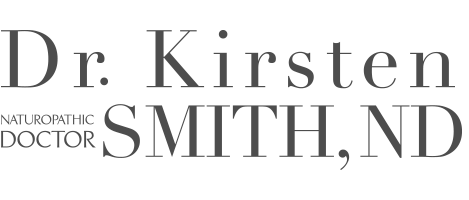PCOS Treatment
Treating Polycystic Ovarian Syndrome Naturally
PCOS is a hormonal disorder that affects between 6 to 10% of women.
Symptoms often start once the menstrual cycle begins but in some cases may not appear until well into a woman’s 20s or 30s. It is one of the most common endocrinological imbalances Dr. Smith treats so thankfully there are some really successful natural treatments that deliver solutions for this complex condition.
What is PCOS (Polycystic Ovarian Syndrome)?
The name of this condition is a little misleading as you may or may not have many cysts in your ovaries. PCOS is really a collection of symptoms that collectively make up a syndrome. Online you will see morbidly obese women with lots of unwanted hair growth, but the truth of it is that there are many women with none of these “text book” presentations with the only presenting symptoms being things like an irregular period or that they aren’t cycling at all.
PCOS causes the ovaries to produce higher than normal amounts of androgens such as testosterones, which interfere with egg production. The eggs that the ovaries normally produce monthly to ovulate can then develop into cysts (instead of getting expressed by the ovary). A cyst is a little sacs filled with liquid – in this case an old follicle. As many ovulations are missed and more follicles grow and become cysts, they can build up and enlarge the ovaries.
PCOS is also a condition in which there is insulin resistance (like diabetes) and can affect many systems in the body and have long-term health consequences. The complex interplay between the sex hormones and blood sugar imbalances make up the variety of symptoms women may experience.
Symptoms of PCOS
If ovarian cysts exist, very often they are painless and only discovered by ultrasound. Other PCOS symptoms include weight gain, infrequent or absent menstrual periods and signs of increased androgens, male hormones that are normally found in women such as acne and increased hair growth (hirsutism) on the face, around nipples, upper thighs and pubic area.
Although many women with PCOS have no trouble falling pregnant, the condition can cause fertility challenges. Increased anxiety and depression are also indicators of PCOS commonly found in PCOS patients.
The other challenge as mentioned previously with PCOS is insulin resistance, which means that the cells resist the hormone’s instruction to allow glucose to enter cells, causing blood sugar levels to rise which can lead to weight gain. Insulin resistance may indicate the early stages of type 2 diabetes, reason enough to treat PCOS.
The most common symptoms of PCOS are:
- infrequent or irregular periods (oligomenorrhea)
- no periods at all (amenorrhea)
- excessive bleeding during your period (polymenorrhea)
- enlarged ovaries with multiple small painless cysts or follicles that form in the ovary
- darkening and thickening of the skin on the neck, groin, underarms or skin folds (acanthosis nigricans)
- thinning hair or balding
- excess hair all over the body, including the face (hirsutism)
- Acne, in particular along the jaw-line
- weight gain / obesity
- anxiety or depression
- increased blood sugar
- infertility (note that many women diagnosed with PCOS will NOT experience infertility so appropriate measures should still be taken regarding preventing unplanned pregnancy)
What Causes PCOS
No one knows at this point what causes PCOS. Some researchers think that it may be caused by high insulin production. Insulin is a hormone that controls blood sugar levels and when too much insulin is produced this can stimulate the release of testosterone (which ultimately causes acne and hirsutism). Additionally, while the exact genes have not yet been identified, PCOS seems to run in families (as do other blood sugar disorders such as diabetes, interestingly).
What are the Treatments?
The goal of treatment is to balance hormones which results in resolving or greatly reducing some of the symptoms, such as acne, weight gain and irregular cycles.
Ultimately, every woman is treated based on her individual case as there are tremendous differences in what women experience with this condition. For some women it is only hairloss (LINK), for some women it is more about weight management, for some women their thyroid (LINK) is also involved, for some the only symptom is irregular periods. Dr. Smith creates a treatment plan based on comprehensive blood work and the specific symptoms each woman has.
A typical treatment plan may include some of the following:
- Dietary changes (blood sugar balancing), weight loss
- An exercise plan (improve insulin sensitivity/ weight loss
- Botanical medicines that can reduce androgen conversion and improve insulin sensitivity
- Sometimes bioidentical hormones like progesterone are helpful for re-establishing a normal cycle

